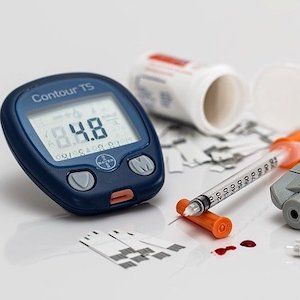Greater Socioeconomic Deprivation Reduces DAFNE Course Efficacy in T1D Care
Participants in the least deprived group had one quarter the odds of no change/increase in mean HbA1c compared with the most deprived group.

New findings suggest an association between socioeconomic deprivation and reduced efficacy of Dose Adjustment for Normal Eating (DAFNE) training in reducing HbA1c in patients with type 1 diabetes (T1D).
Individuals in the least deprived group (Scottish Index of Multiple Deprivation [SIMD] 5) had one quarter the odds of no change or increase in mean HbA1c when compared with the most deprived group (SIMD 1), according to study investigators.
“While benefit was observed in the least deprived quintile with a mean reduction in mean HbA1c of 5 mmol/mol (0.5% in percentage units) in SIMD 5, this benefit was not apparent in the most deprived groups and mean HbA1c increased in SIMD quintiles 1 and 2,” wrote study authors Callum W.D. Innes, Glasgow Royal Infirmary and David E. Henshall, University of Edinburgh. “This suggests that socioeconomic deprivation is associated with reduced efficacy of DAFNE in reducing HbA1c.”
Innes and Henshall report that attendance at DAFNE courses has been associated with improved glycemic control and psychological benefits for patients, with the key message that patients with T1D do not need additional dietary restrictions with appropriate insulin adjustment.
The retrospective observational study identified adults with T1D aged 18 years or older who met measurement criteria and who attended a DAFNE course between 2006 - 2017 at NHS Lothian. Its primary outcome was the reduction in mean HbA1c as an index of improved glycemic control following attendance at a DAFNE training.
The investigators extracted data on participant demographics, including age, sex, and postcode as well as diabetic management, including age at diagnosis, HbA1c, current insulin regimen and use and start date of insulin pump when applicable. Moreover, they generated SIMD quintiles based on location of course attendance.
Multivariable ordinal logistic regression was performed, with baseline mean HbA1c as a covariate, in order to investigate the association of SIMD quintile with reduction in mean HbA1c.
A total of 471 participants attended and completed a five-day DAFNE course and following exclusions, 335 of these participants were included in the study. The mean age at the time of study was 45 years old and more women attended training than men (59% versus 41%). Investigators noted there were fewer participants in SIMD 1 compared with other quintiles.
Data show mean HbA1c levels prior to DAFNE attendance were often above recommended targets for diabetic control (mean, 72 mmol/mol (8.7%), 321 participants (96%) above current recommended target <48 mmol/mol (6.5%).
Across each group, the study reported a reduction in the mean HbA1c after attending a DAFNE course (mean difference, 2.5 mmol/mol; 95% confidence interval [CI], 1.1 - 3.8; P <.001). Moreover, data suggest lower SIMD quintiles (greater deprivation) had higher baseline mean HbA1c (SIMD: 1, 76.0; SIMD 5, 69.0).
The observed reduction in mean HbA1c was more apparent to investigators in higher SIMD quintiles (lower deprivation) following DAFNE, with a mean reduction of 5.0 mmol/mol (0.5% units) in SIMD 5. Additionally, the investigators noted the standard deviation and glycemic variability of HbA1c measurements were similar to SIMD quintiles before and after attending DAFNE.
On multivariable analysis, higher SIMD quintiles were associated with lower odds or no change or increase in mean HbA1c (odds ratio, 0.25; 95% CI, 0.10 - 0.58; P = .001).
“Future research should explore causes for this disparity and how best to support participants from deprived areas in managing their diabetic control,” the study authors concluded.
The study, “Socioeconomic deprivation is associated with reduced efficacy of an insulin adjustment education program for people with type 1 diabetes,” was published in Diabetic Medicine.